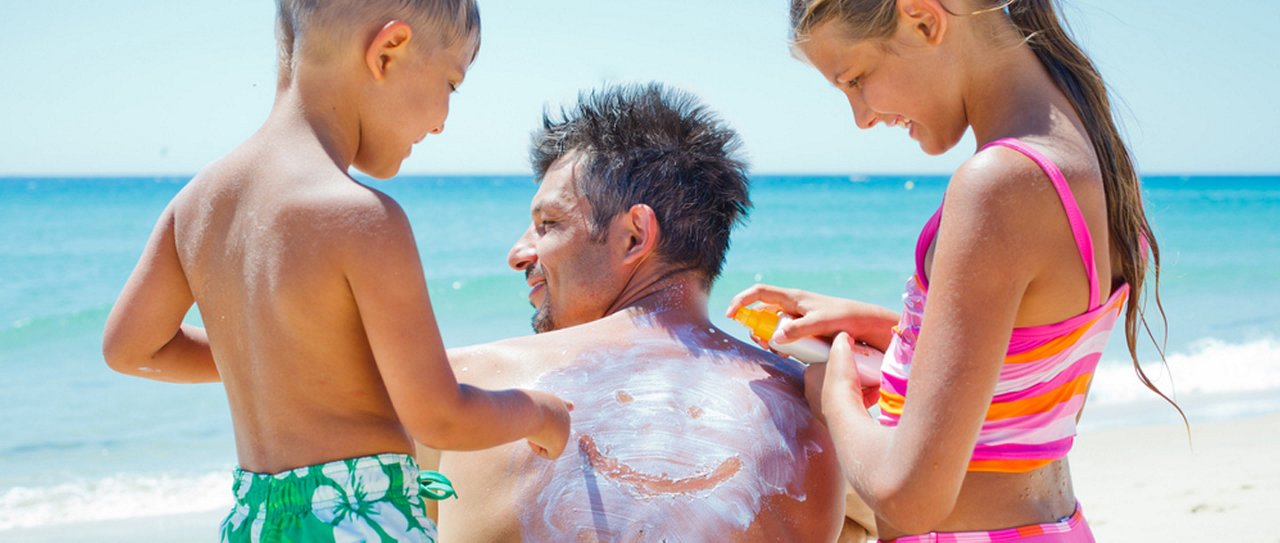
There’s a scene in a mid-‘80s movie called Fletch where Chevy Chase is pretending to be a doctor talking about skin cancer: “They said he had a melanoma, carcinoma, some kind of noma.”
At the time, I thought that was funny. But a few years later, I learned there’s nothing funny at all about skin cancer. It’s serious – deadly serious.
The start of summer – when North Carolinians are compelled to get outside and enjoy our state’s gorgeous warm weather – is a good time for some education on just how dangerous the sun can be.
My own lesson in the gravity of skin cancer started about 20 years ago when I noticed a mole on my stomach seemed a little different from the last time I looked at it. The color had changed.
I told myself I should have it looked at. That internal reminder replayed itself for several months until I finally scheduled an appointment with a dermatologist.
The doctor didn’t like how the mole looked and took a biopsy. I left the doctor’s office feeling a little smug that I’d done the right thing by having my mole checked out, fairly certain that the biopsy would show I had nothing to worry about, and I could get on with my life.
A few days later, I got home from work fairly late in the evening. My wife told me the dermatologist called and left a message that I should call her whenever I got home. I’d never had a doctor ask for a return phone call late at night. I made the call and heard one of the most frightening things any of us can hear: I had cancer.
So many of us will hear those words at some point in our lives. And when we hear them, literally everything changes. Priorities are instantly rearranged.
In that moment, I became infinitely more practical than I had been. I wanted to know what this was, how I got it, how I could fight it, and when I could start.
My mind started racing. I pictured my daughter’s graduation and her wedding – and my wife standing there without me. I was shocked back into the present when the doctor started explaining that my melanoma was Clark’s Stage IV. After I hung up from the call, I immediately went online to find out what that meant. This was 1997, and the statistics for five-year survival rate for that stage was not great (15 to 20% according to the American Cancer Society).
We were living in Atlanta at the time, and my dermatologist immediately referred me to an oncologist at Emory University Hospital. When my wife and I visited the oncologist, we talked about options and decided on a sentinel lymph node biopsy.
A few weeks later I was admitted to Emory, where they did a wide excision of skin around the melanoma and performed the sentinel lymph biopsy. They removed select lymph nodes from my groin and armpits and were able to confirm my cancer had not spread into my lymph nodes.
For several years afterward, I would go every six months alternatively to my oncologist and dermatologist for them to do a full body scan, remove any moles that looked troubling and get them checked for cancer.
Fortunately, I have not had a recurrence of melanoma. These days, I have an annual visit to my dermatologist to get screened.
As we all get outside this summer, remember to protect yourself from the heat and sun.
Wear hats and lots of sunscreen.
Try to avoid too much sun. I grew up on a farm where we were outdoors all summer and I don’t remember applying sunscreen as a kid. Now, while I still enjoy the beach, pool and the outdoors, I try to sit in the shade under an umbrella or if I’m in the sun, I wear a hat and sunscreen.
Also, watch for moles that change in color or look abnormal. If you see something suspicious, visit a dermatologist.
I am glad that I have survived more than 20 years post my melanoma. I’ve seen my daughter graduate from high school and college, and since this scare, we have had two other children.
But I still don’t think I can watch Fletch and laugh the way I used to.
Blue Cross and Blue Shield of North Carolina does not discriminate on the basis of race, color, national origin, sex, age or disability in its health programs and activities. Learn more about our non-discrimination policy and no-cost services available to you.
Information in other languages: Español 中文 Tiếng Việt 한국어 Français العَرَبِيَّة Hmoob ру́сский Tagalog ગુજરાતી ភាសាខ្មែរ Deutsch हिन्दी ລາວ 日本語
© 2026 Blue Cross and Blue Shield of North Carolina. ®, SM Marks of the Blue Cross and Blue Shield Association, an association of independent Blue Cross and Blue Shield plans. All other marks and names are property of their respective owners. Blue Cross and Blue Shield of North Carolina is an independent licensee of the Blue Cross and Blue Shield Association.


